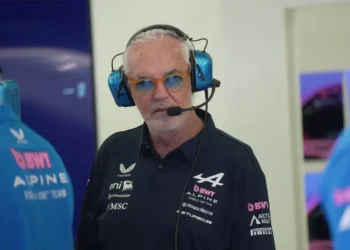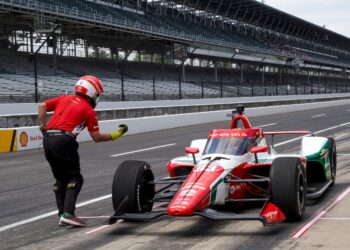A revolution is brewing in the world of Formula 1, and Audi F1 chief Mattia Binotto is here to set the record straight – don’t expect miracles from the 2026 Audi F1 power unit right out of the gate.
The upcoming 2026 season is poised to shake things up with a complete overhaul of the technical regulations, ushering in a new era for the sport. With weight reduction in the cars and a significant increase in electrical output, the power unit regulations will see a shift towards a more sustainable and hybrid future for Formula 1.
Big names like Cadillac, Audi, and Ford are gearing up to join the grid, each with their own plans to make a mark in the sport. Audi, in particular, has acquired the Sauber team and is preparing to make waves as a factory outfit under the new regulations.
Binotto, a seasoned engine engineer turned team boss, is well aware of the challenges that lie ahead in developing a competitive power unit. While he remains optimistic about Audi’s progress, he is realistic about their chances of dominating from the get-go.
Looking back at history, particularly the introduction of turbo-hybrid engines in 2014 which led to Mercedes’ dominance, Binotto warns of the potential for one team to establish a prolonged period of superiority under the new engine rules.
Fuel choice will also play a crucial role in shaping the competitive landscape of F1 in 2026, with options like e-fuels and biofuels giving teams more control over their performance. Audi’s ties to Volkswagen’s sustainable petrol alternatives through Porsche could give them an edge in this aspect.
As the countdown to 2026 continues, all eyes are on Audi and its ambitious entry into the world of Formula 1. While Binotto may downplay immediate expectations, the stage is set for a thrilling battle of innovation and performance on the track.
Get ready for a new chapter in Formula 1 history, where power units and performance will redefine the limits of speed and technology.










